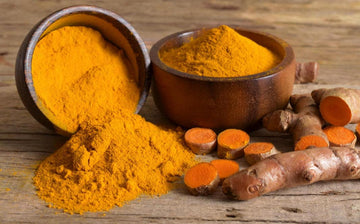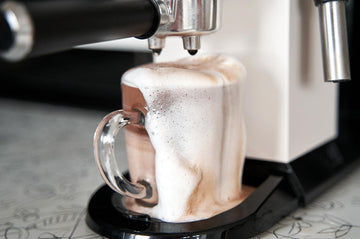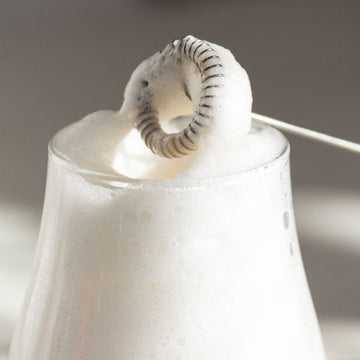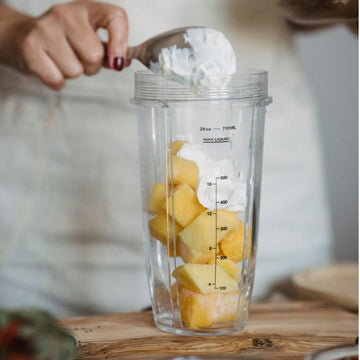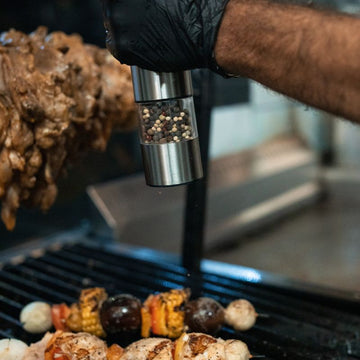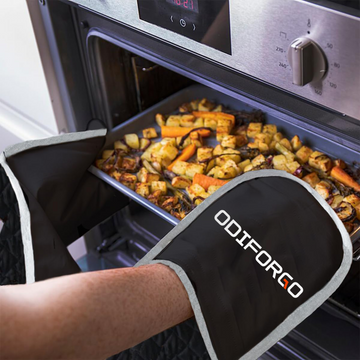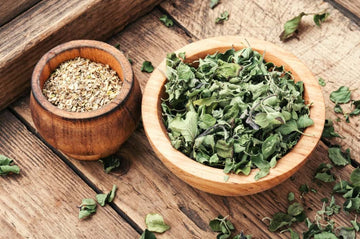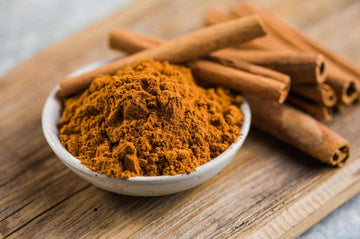Dried oregano is one of those pantry ingredients that quietly does a lot of heavy lifting. From Italian tomato sauces and Greek marinades to roasted vegetables and homemade dressings, it adds an earthy, peppery punch that fresh herbs often can’t replicate. But what exactly is dried oregano, and how does it compare to fresh oregano?
In this guide, we’ll take a closer look at what dried oregano is, how it’s made, and how you can use or even make it at home, from drying your own oregano sprigs to creating oregano oil and grinding it for seasoning blends. Whether you're restocking your spice rack or wondering if you can swap in another herb, we’ll cover the practical details that help dried oregano earn its place in your kitchen.
What is the oregano herb, and what is dried oregano?
Oregano is a perennial herb from the mint family, native to the Mediterranean region but widely grown and used around the world. Its small, oval-shaped leaves carry a strong aroma and a pungent, slightly bitter taste. In cooking, oregano is prized for its ability to add depth and complexity to savory dishes. Especially those involving tomatoes, garlic, or olive oil.
When we talk about dried oregano, we’re referring to those same leaves harvested at their peak, then dried to preserve their flavor. Drying actually intensifies the herb’s taste, which is why dried oregano tends to have a bolder, more concentrated flavor than the fresh version. That’s also why recipes usually call for smaller amounts of dried oregano than fresh.
In dried form, oregano becomes one of the most versatile and shelf-stable spices available. It’s a foundational ingredient in Italian, Greek, Turkish, and Middle Eastern cooking. You'll find it sprinkled over pizza, blended into salad dressings, infused in oils, and used to season everything from grilled meats to roasted vegetables.
There are a few different varieties of oregano, including Greek oregano (Origanum vulgare subsp. hirtum), which is most commonly used in dried form. Other types, like Mexican oregano (from a different plant family entirely), have a citrusy undertone and are used more often in Latin American cuisine. Both types are often dried, but their flavor profiles are quite distinct.
How to dry oregano

Drying oregano at home is easy, requires minimal equipment, and ensures that you preserve the herb’s flavor at its peak. The best time to harvest oregano for drying is just before the plant flowers, when the leaves contain the highest concentration of essential oils. Below are a few reliable methods to dry oregano effectively, depending on what tools and space you have available.
Traditional air drying
This is the most natural and hands-off approach, ideal if you live in a dry climate.
-
Harvest: Cut stems that are 5–6 inches long, preferably in the morning after dew has dried but before the sun becomes too intense.
-
Clean: Gently rinse the stems under cool water to remove dirt or bugs, then pat them dry with a paper towel.
-
Bundle: Tie 4–6 stems together with string or a rubber band.
-
Hang: Hang the bundles upside down in a warm, dry, and well-ventilated area out of direct sunlight. A paper bag with holes can be placed over the herbs to protect them from dust.
-
Wait: After about 1 to 2 weeks, the leaves should feel crisp and crumble easily.
Oven drying
Useful when you need dried oregano more quickly or live in a humid environment.
-
Preheat: Set your oven to the lowest temperature setting, typically around 170°F (75°C) or lower.
-
Prepare: Remove oregano leaves from the stems and spread them in a single layer on a baking sheet lined with parchment paper.
-
Dry: Place in the oven for 1–2 hours, leaving the door slightly ajar to allow moisture to escape. Check frequently to prevent scorching.
-
Cool and store: Once fully dry, allow the leaves to cool before storing.
Dehydrator method
If you have a food dehydrator, this is one of the most efficient and controlled ways to dry herbs.
-
Set temperature: Use the “herb” setting or around 95°F to 115°F (35°C to 46°C).
-
Arrange: Lay leaves or small sprigs in a single layer on the dehydrator trays.
-
Dry: Run the dehydrator for 1–4 hours, checking occasionally. Leaves are done when they crumble easily.
Storing dried oregano
After drying, strip the leaves from the stems (if still attached) and discard the woody parts. Store the dried oregano in an airtight container, away from heat and light. For the strongest flavor, crush the leaves just before using rather than during storage. Properly dried and stored oregano can retain its potency for up to a year.
How to grind oregano
Once your oregano is dried, grinding it is the next step to make it usable as a finely textured spice in recipes. While some dishes call for whole dried leaves, ground oregano disperses more evenly in sauces, rubs, and dressings. There are several methods you can use to grind dried oregano, depending on how fine you want the end result and what tools you have available.
By hand
This is the most accessible method, ideal if you want coarsely crushed oregano or prefer a more tactile approach.
-
Crushing by hand: Simply take a pinch of dried oregano leaves and rub them between your palms over a bowl or paper towel. This gives you a rustic, uneven grind that works well for hearty dishes like roasted meats or stews.
-
Using a mortar and pestle: Place a small amount of dried leaves in the bowl and press them with the pestle using a circular motion. This gives you a finer and more uniform grind while releasing some of the herb’s essential oils in the process.
Using a spice grinder
If you need a large amount or want a powder-like consistency, a spice grinder (or a clean coffee grinder used only for herbs) is your best option.
-
Fill the grinder with a few tablespoons of dried oregano leaves.
-
Pulse in short bursts to control the texture.
-
Sift the powder through a fine mesh sieve if you want to remove any larger pieces.
This method is especially useful for creating homemade spice blends or for recipes where you want a smooth, integrated flavor without visible herb flakes.
Oregano spice recipes
Dried oregano is a versatile and aromatic spice that pairs well with a wide variety of dishes. While it’s most famously associated with Mediterranean and Italian cooking, its reach goes far beyond pasta sauces and pizza toppings.
Here are some popular and simple ways to use oregano spice in everyday cooking:
-
Tomato-based dishes: Add a pinch to marinara sauce, chili, or tomato soup to enhance depth and warmth.
-
Meat rubs and marinades: Combine dried oregano with garlic powder, salt, and paprika for a dry rub on chicken, lamb, or beef.
-
Roasted vegetables: Toss root vegetables or zucchini with olive oil, salt, and oregano before roasting for a flavorful twist.
-
Salad dressings: Mix with olive oil, vinegar, and lemon juice for a classic Greek-style vinaigrette.
-
Oregano-infused oils: Sprinkle into olive oil for dipping bread or drizzling over grilled dishes.
-
Herb bread or crackers: Incorporate into dough for a savory, aromatic baked good.
-
Egg dishes: A light sprinkle over scrambled eggs, omelets, or frittatas adds a subtle herbal note.
Dried oregano shines when used early in the cooking process, allowing time for its oils to infuse into dishes. It's a spice that complements both bold and mild flavors, making it a pantry staple for home cooks.
How to make oregano oil

Oregano oil can be made at home and used for both culinary and herbal purposes. While the essential oil version requires distillation equipment, a simple infused oregano oil can still offer flavor and some mild beneficial properties. Here’s how to do it using dried oregano:
Ingredients
-
1 cup dried oregano (preferably home-dried or high-quality store-bought)
-
1 to 1½ cups carrier oil (olive oil is most common; grapeseed or avocado oil are also good options)
-
A clean glass jar with a tight lid
-
A small saucepan or a sunny windowsill
Warm infusion
-
Prepare the jar: Place the dried oregano in the clean glass jar and pour in the carrier oil, ensuring the herbs are fully submerged. Stir to eliminate air bubbles.
-
Gently heat: Set the jar into a saucepan with a couple inches of water, creating a double boiler effect. Warm over low heat for 1–2 hours. The oil should be warm but never boiling.
-
Let it rest: After warming, let the jar cool to room temperature and allow the mixture to infuse overnight for stronger flavor.
-
Strain and store: Use a fine mesh strainer or cheesecloth to remove the oregano. Pour the strained oil into a clean, dark glass bottle. Store it in a cool, dry place.
Cold infusion
-
Combine ingredients: Fill a clean jar with dried oregano and cover completely with oil.
-
Steep in sunlight: Place the jar on a sunny windowsill for 1–2 weeks, shaking it gently every day.
-
Strain and store: After steeping, strain the oil and store it in a dark, airtight bottle.
Notes:
-
This homemade oregano oil is not a concentrated essential oil and is safe to use in cooking (e.g., drizzling on bread, salads, pasta) or topically in moderation.
-
For medicinal purposes, always consult with a healthcare professional before using any herbal oil.
Making oregano oil at home is simple, cost-effective, and a great way to preserve the flavor and subtle health benefits of the herb.
A versatile herb worth keeping in the pantry
Whether you're drying oregano from your garden, grinding it for seasoning, or infusing it into oil, dried oregano is one of the most useful and accessible spices in any kitchen. Its earthy, slightly peppery flavor enhances countless recipes. From pizza and pasta to roasted meats and homemade dressings. And with a little effort, you can prepare your own high-quality oregano products at home.
Dried oregano is a foundation for Mediterranean and global cuisines. Keep experimenting with it, explore different methods of preparation, and consider growing and drying your own for the freshest results. With its strong flavor and wide range of uses, oregano will always have a place in the spice rack.
